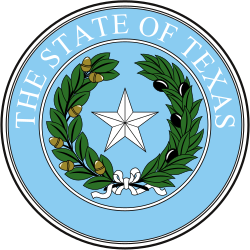| |||||||||||||||||||||||||||||||
All 24 Texas seats to the United States House of Representatives | |||||||||||||||||||||||||||||||
|---|---|---|---|---|---|---|---|---|---|---|---|---|---|---|---|---|---|---|---|---|---|---|---|---|---|---|---|---|---|---|---|
| |||||||||||||||||||||||||||||||

| |||||||||||||||||||||||||||||||
| Elections in Texas |
|---|
 |
The 1976 United States House of Representatives elections in Texas occurred on November 2, 1976, to elect the members of the state of Texas's delegation to the United States House of Representatives. Texas had twenty-four seats in the House apportioned according to the 1970 United States census. [1]
Contents
- Overview
- Congressional districts
- District 1
- District 2
- District 3
- District 4
- District 5
- District 6
- District 7
- District 8
- District 9
- District 10
- District 11
- District 12
- District 13
- District 14
- District 15
- District 16
- District 17
- District 18
- District 19
- District 20
- District 21
- District 22
- District 23
- District 24
- References
Texas underwent mid-decade redistricting as a result of the U.S. Supreme Court case White v. Weiser. The court's modified districts were used in 1974. In 1975, the Texas Legislature modified the boundaries District 2 and District 6 to move the town of Streetman, which is on the border of Navarro County and Freestone County, fully within the boundaries of District 6. [2] [3]
These elections occurred simultaneously with the United States Senate elections of 1976, the United States House elections in other states, the presidential election, and various state and local elections.
Democrats maintained their majority of U.S. House seats from Texas, gaining two seats from the Republicans, increasing their majority to twenty-two out of twenty-four seats. [4]